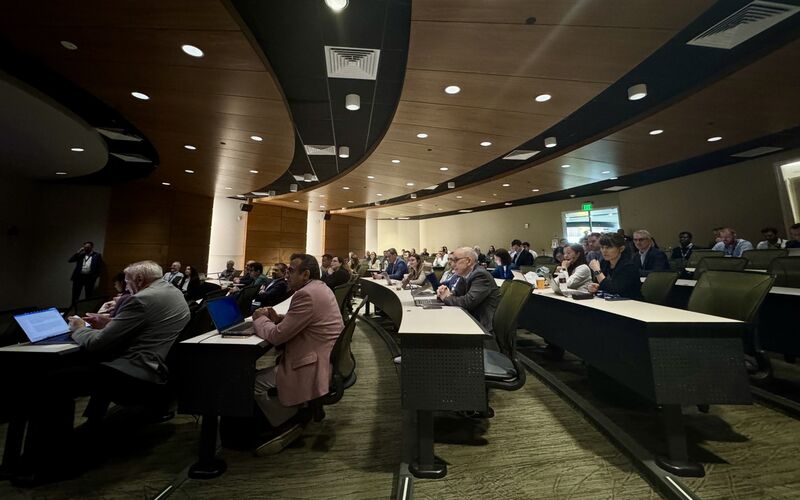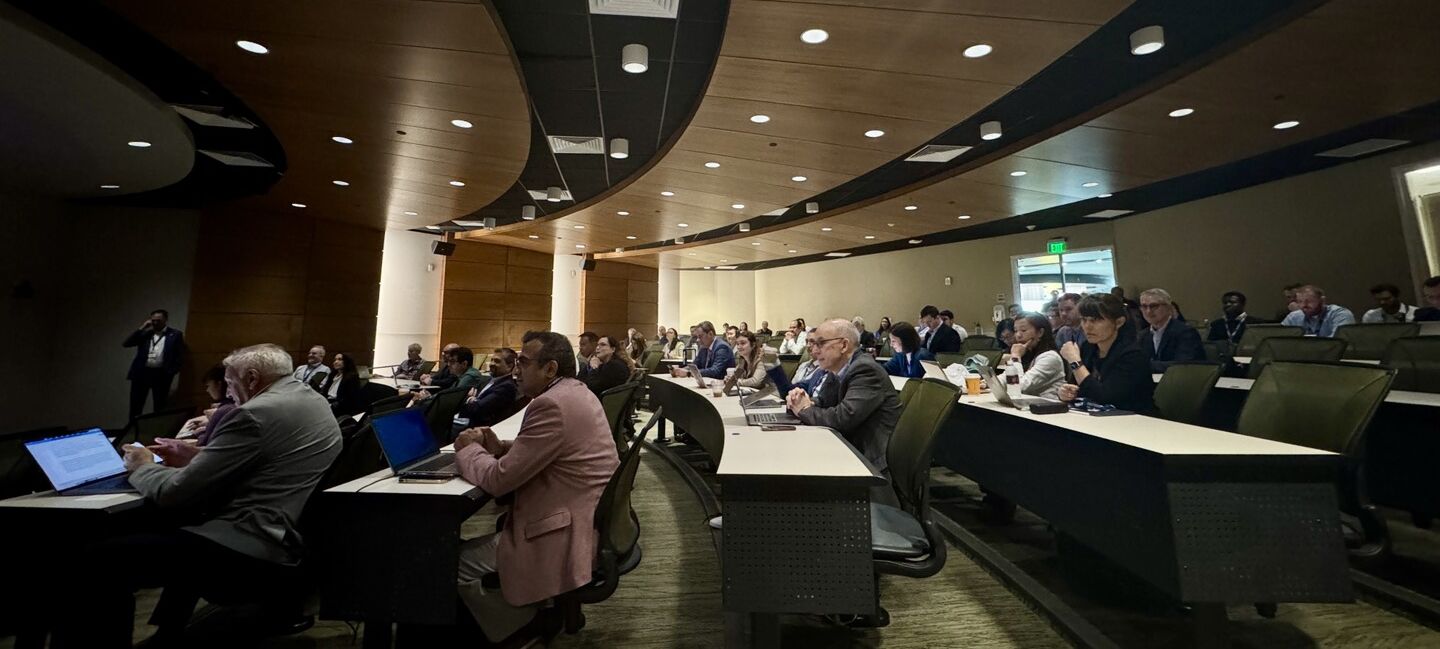Moffitt Hosts 3rd Annual Cancer Engineering Summit
The world’s leading experts in cancer research and engineering came together for the third annual Cancer Engineering Summit, an event aimed at accelerating the fight against cancer through technological innovation. Hosted by Moffitt Cancer Center, the two-day summit took place at the University of South Florida’s Center for Advanced Medical Learning and Simulation in downtown Tampa. The event was the first of its kind in the Bay Area.
The 2025 Cancer Engineering Summit brought together 200 researchers and clinicians from multidisciplinary fields to advance cancer research through innovative collaboration. Together, we are Engineering Cancer's End™.#CancerEngineeringSummitt #CancerEngineering #BioEngineering pic.twitter.com/GNxGBBhHkG
— Moffitt Cancer Center (@MoffittNews) February 12, 2025
More than 170 scientists, physicians and engineers from around the world shared the latest breakthroughs in precision medicine, nanotechnology and AI-driven treatments.
Moffitt founder H. Lee Moffitt and Tampa Mayor Jane Castor opened the event with powerful stories on how cancer has impacted their lives before Gregory Sawyer, PhD, chair of the Bioengineering Department at Moffitt, introduced the first presentation.
“This what engineers do, we love to tear apart problems and put them back together,” Sawyer said. “I believe we will be a part of the solution to cancer. You have to believe what you’re doing will make a difference. I believe we are engineering cancer’s end.”
Cancer engineering blends 12 key fields, including system dynamics, nanomaterials, robotics and biofabrication to tackle cancer from all angles. This area of science integrates engineering and physical sciences with oncology to change how we understand and treat this complex disease. Moffitt is the first National Cancer Institute-designated comprehensive cancer center with a dedicated bioengineering department.
“These disciplines are all working together in a multidisciplinary, even transdisciplinary approach to try to improve treatments for all of our patients, invent new technologies to improve care and diagnostics of all of this, and to catch and prevent cancer,” Sawyer said.
Moffitt Physician-in-Chief Karen Lu, MD, spoke to the group about her role as a clinician and how research will benefit from a multidisciplinary team approach.
“In cancer research we’ve always understood the importance of the relationship between clinicians and basic scientists,” Lu said. “Including engineers can not only make the problem more solvable, but it can also change the culture of that group of people working together.”
Live from #CancerEngineeringSummit, Karen Lu, MD (@karenluMD) highlights the power of a multidisciplinary approach—uniting clinicians, research scientists and engineers to drive innovation in cancer care. pic.twitter.com/NS1FkAvmqY
— Moffitt Cancer Center (@MoffittNews) February 11, 2025
Lu emphasized the importance of getting engineers into the operating rooms and attending tumor board meetings.
“Then you’ll really be able to understand the problems we’re trying to solve together,” she said.
Moffitt physician-scientist Erin George, MD, in the Gynecologic Oncology Department, shared the latest on how 3D drug discovery platforms are advancing cancer treatments.
“We collect a patient tumor sample during surgery or a biopsy and then create hundreds of smaller tumors by mincing this sample into submillimeter size fragments, which we call microtumors,” George said. “We then grow these microtumors in a Darcy plate within a liquid like solid media that allows these tumors to expand and thrive for weeks.”
Darcy plates are a new type of cell culture tool created by Sawyer. The plates allow scientists to grow numerous 3D microtumors and study the evolution and response of these patient tumors to different drugs and agents.
Alexander Anderson PhD, is the chair of Moffitt’s Integrated Mathematical Oncology Department. In the final presentation of the summit, he shared how his team is advancing evolutionary therapy by leveraging real-time tumor measurements to tailor treatments as cancer evolves.
“It was cool to highlight how the work we’re doing on evolutionary therapies would require temporal measurements of the tumor and its dynamics,” Anderson said. “This group of engineers would be able to potentially come up with the technology to measure a tumor in real time. That means our mathematical models can be much more accurately calibrated to individual patients allowing our therapies to be more specific leading to better outcomes.”
Anderson adds that the focus on evolutionary therapy is to adapt treatments as the cancer evolves and the only way to know how a cancer evolves is to dynamically measure it.
The annual summit is scheduled to return to Tampa next February.




